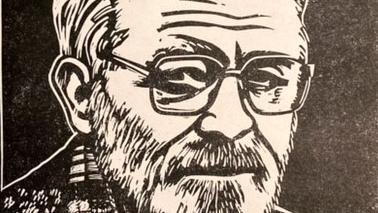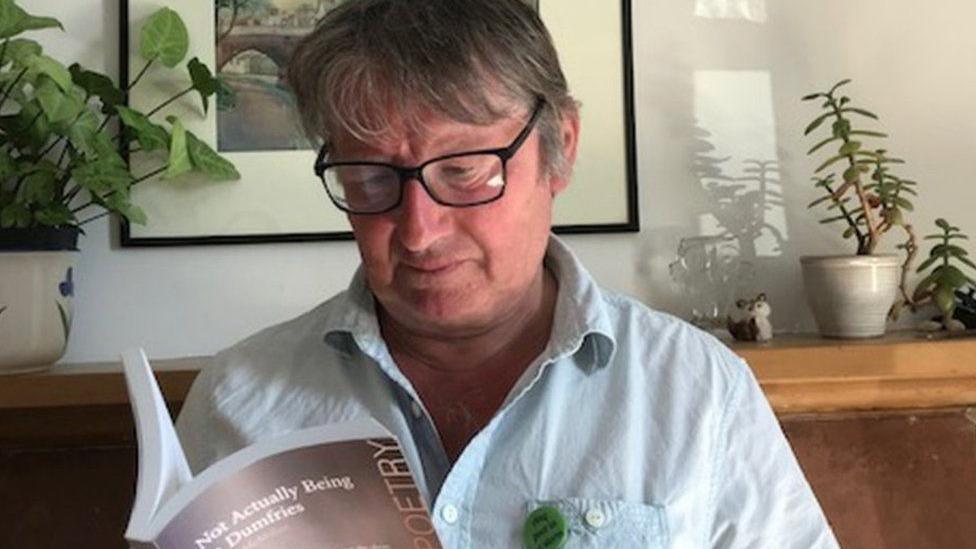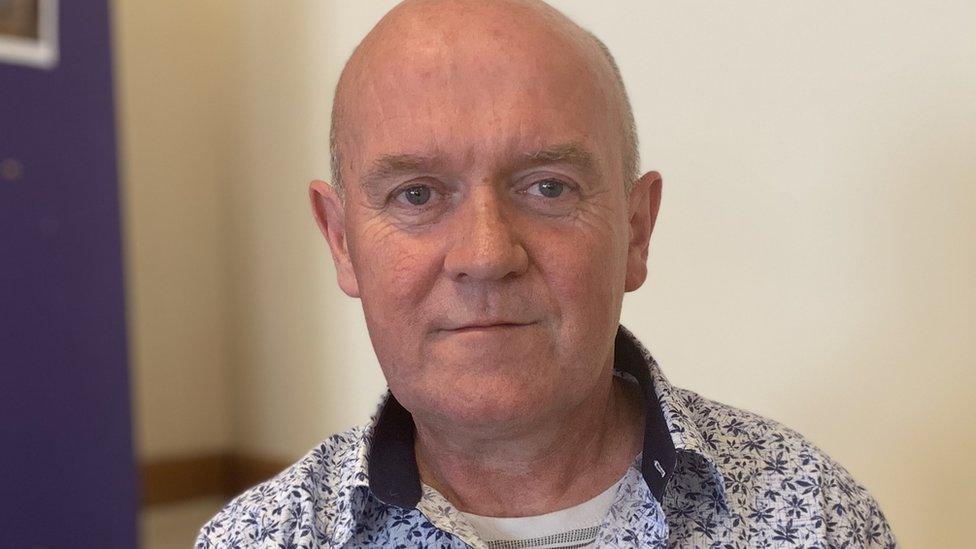Centenary celebration of poet who wrote in three languages

William Neill wrote in Scots, Gaelic and English
At a glance
A new book is being launched to mark the centenary year of poet William Neill's birth
His work - in Scots, English and Gaelic - has been described as "very undervalued"
It is hoped the book can help raise awareness of the poet's work
- Published
A celebration of the centenary of a poet who wrote in three languages is being held in southern Scotland.
William Neill was born in Ayrshire in 1922 but lived in Dumfries and Galloway for much of his life.
A book of recollections, memories and tributes is being launched in Gatehouse of Fleet as part of the Big Lit festival on Thursday.
Poet Hugh McMillan said Mr Neill was not as well known as he deserved to be on the strength of his work in Scots, Gaelic and English.
Along with fellow poet Stuart Paterson, they have put together the book in his honour entitled The Leaves of the Years.
Mr McMillan said there were many reasons why Mr Neill deserved to be remembered.
"I think there is a whole squad of things," he said.
"First of all, he is unique in being a skilled trilingual poet.
"He's possibly the only writer - that I can think of anyway - who wrote proficiently in Scots, in Gaelic and in English and was equally good at all of them."

Hugh McMillan helped to put together the book in tribute to Mr Neill
Another reason is his symbolic importance to the area.
"He is Galloway's father of the house, if you like," he said. "He is the leading poetical figure in Galloway."
Mr McMillan said he believed the poet was "very undervalued" at a national level.
"He ruffled a lot of feathers and he was quite thrawn in a sense - he had a very acerbic tongue," he said.
"He had very, very fiercely held opinions about Scottish nationalism and about literature and the landlords of Galloway and so on."
Geography also worked against him.
"He based himself in Galloway," said Mr McMillan.
"He had this idea that there was no reason why a poet can't live in his sort of rural locale speaking the languages of the people, using the traditions of the area, using even the local publishing houses and establishing a sort of a poetical career there.
"That's not the way it works, unfortunately. You know, you've got to be up in Edinburgh or Glasgow."
However, it is hoped the new book can raise awareness of his work and increase recognition of his ability.
Related topics
- Published17 July 2022
